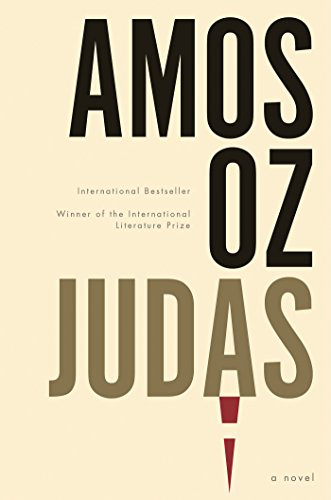
Mostly a links blog with occasional commentary on the linked articles (since 2010 mostly my book reviews) and infrequent personal updates. I am a 64 year old married writer. See my website for my current writing projects and to download my ebooks; my about me page has links to my various web 2.0 venues.
Sunday, November 27, 2016
Book review: Judas by Amos Oz
“For Oz’s fans and liberal Zionist fiction readers Judas is a required text whose writing is its own reward.” -- from my review of in New York Journal of Books


Thursday, October 20, 2016
Book review: A Greater Music by Bae Suah
"Bae’s prose alternates between detailed descriptions of everyday life and ruminative passages on music, ideas, and her character’s mental state. The late American poet William Matthews once described his taste in literature as a preference for prosy poetry and poetic prose. A Greater Music exemplifies the latter category; it requires and amply rewards rereading." -- from my review in New York Journal of Books


Wednesday, September 21, 2016
Book review: Two She-Bears by Meir Shalev
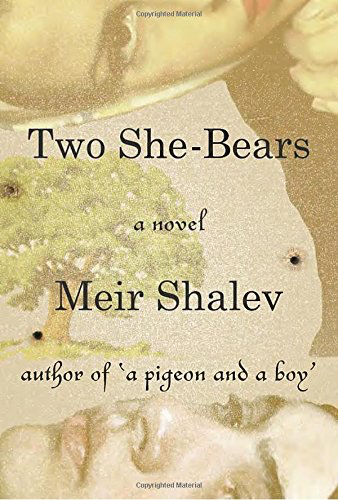
“Is a proclivity to violence and vengeance a gender and/or regional trait? Are the minds of men more than women and/or rural folk more than city dwellers predisposed to violent acts of revenge? Or put another way, are violence and vengeance intrinsic components of the male psyche, and if so are men more likely to resort to them in rural settings? These are the central questions posed by Israeli novelist Meir Shalev in his seventh novel Two She-Bears (in the original Hebrew Shtayim Dubim, Am Oved, 2013).” — the opening paragraph of my review in New York Journal of Books
Wednesday, September 7, 2016
Book review: Leaving Lucy Pear by Anna Solomon
" Leaving Lucy Pear is recommended to readers who enjoy historical fiction, a cast of well developed mainly female characters, and handsome prose." -- from my review in New York Journal of Books
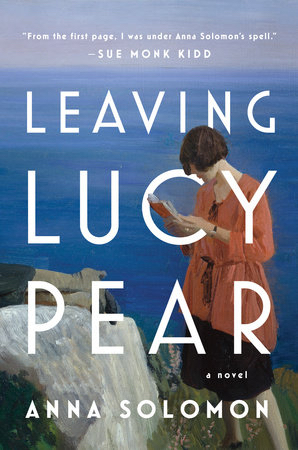
Tuesday, July 19, 2016
Book review: The Lost Civilization of Suolucidir by Susan Daitch
The Lost Civilization of Suolucidir
by Susan Daitch

bookshelves: international-settings, jewish, post-modern, historical-fiction, mysteries, cerebral-fiction
"After reading The Lost Civilization of Suolucidir readers will want to start over again to see what details they may have missed the first time through, and yes, this richly crafted and handsomely written novel rewards rereading. It also demonstrates that an ironic post-modern novel of ideas can be suspenseful and include complex characters readers can care about while feeling powerless to alter their fates." -- from my review of The Lost Civilization of Soulucidir by Susan Daitch in New York Journal of Books

Jul 19, 2016 · David Cooper's review
"After reading The Lost Civilization of Suolucidir readers will want to start over again to see what details they may have missed the first time through, and yes, this richly crafted and handsomely written novel rewards rereading. It also demonstrates that an ironic post-modern novel of ideas can be suspenseful and include complex characters readers can care about while feeling powerless to alter their fates." -- from my review of The Lost Civilization of Soulucidir by Susan Daitch in New York Journal of Books
Wednesday, June 8, 2016
Israeli books: A.B. Yehoshua's The Extra features a child-free heroine
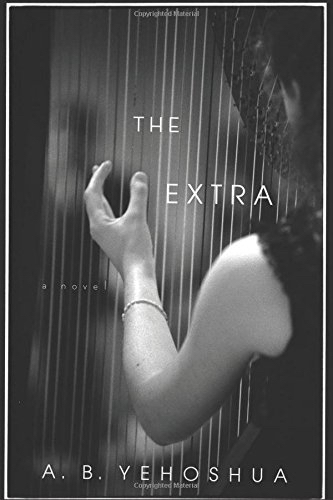
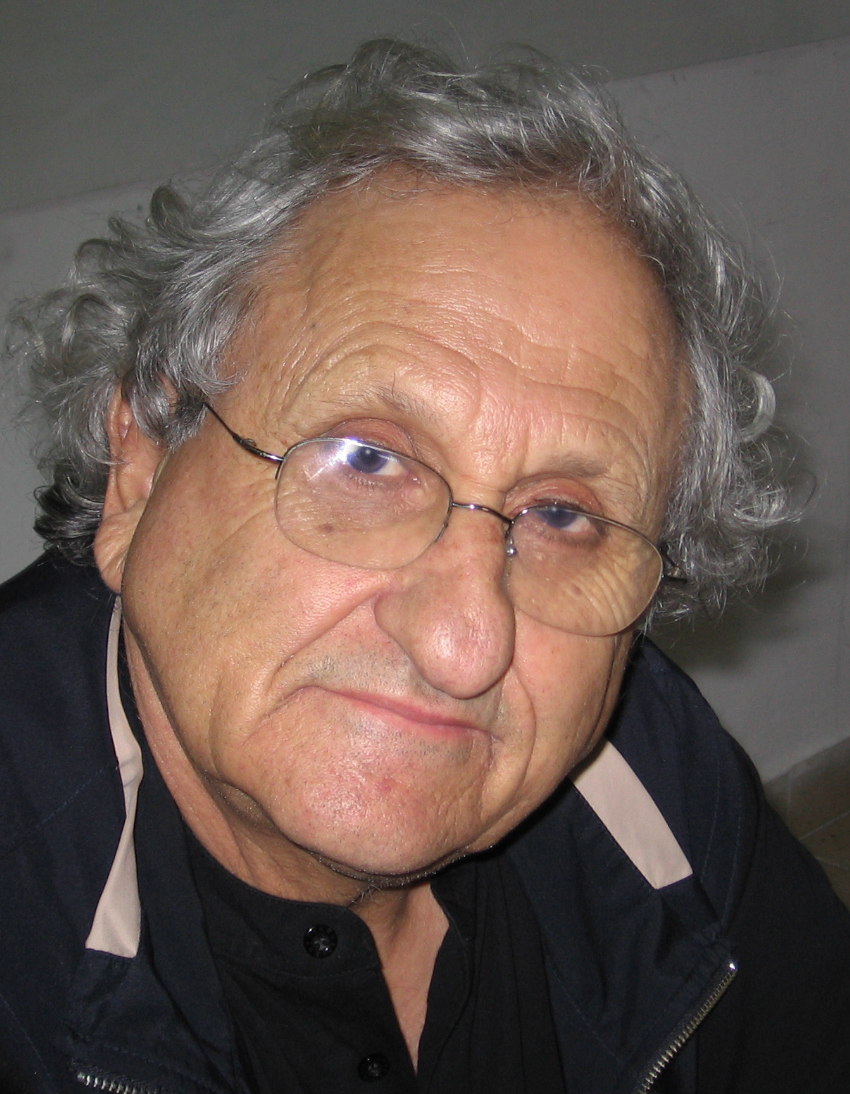
"On the surface the new novel is about feminism and the right of women to choose not to bear children. But an underlying theme is whether liberal nationalism is an oxymoron, whether the rights of the individual (the essence of liberalism) can be reconciled with the needs of the nation." -- from my New York Journal of Books review of The Extra by Abraham B. Yehoshua. For an excerpt from the novel see my addendum to that review below.
The essential objective of nationalism is to ensure that a particular people with a common past will enjoy a common future. The decision by a citizen of a country founded by a nationalist movement not to have children would appear to contradict that national objective. This conflict between individual rights and the needs of the nation is central to The Extra, Israeli novelist A.B. Yehoshua’s newest novel to appear in English translation, which is published today by Boston and New York publisher Houghton Mifflin Harcourt.
The essential objective of nationalism is to ensure that a particular people with a common past will enjoy a common future. The decision by a citizen of a country founded by a nationalist movement not to have children would appear to contradict that national objective. This conflict between individual rights and the needs of the nation is central to The Extra, Israeli novelist A.B. Yehoshua’s newest novel to appear in English translation, which is published today by Boston and New York publisher Houghton Mifflin Harcourt.
In my New York Journal of Books review of The Extra I write,
“On the surface the new novel is about feminism and the right of women to choose not to bear children. But an underlying theme is whether liberal nationalism is an oxymoron, whether the rights of the individual (the essence of liberalism) can be reconciled with the needs of the nation.”
Noga is a 41 soon to be 42 year-old divorced child-free by choice Israeli harpist who lives in Holland where she plays in a regional orchestra. She takes a three month leave of absence from the orchestra to house-sit her elderly mother’s apartment during the latter’s trial residence in an assisted living facility. Her brother Honi, a film and television producer, gets her jobs appearing as an extra in movies, commercials, and an opera performance.
Yehoshua deploys a plot device to arrange for Noga to meet and converse with her former husband Uriah who left her a decade ago when she announced she did not want children and has since remarried and fathered two children with his new wife. Notwithstanding his new family, Uriah is still not at peace with Noga’s choice to be child-free. He tells her,
“‘… Anyway, if even in the beginning you had your doubts about having children, I, as a young man, swept away by love, might have interpreted your hesitation as a teenager’s fleeting radical protest against the state or against the world.’
“‘The state?’
“‘In the hackneyed sense that if Israel is going downhill, better not to have children here.’
“‘I never said that and never thought that. And even if I was sometimes too radical for your taste, I could have given birth to radical children who would aid and abet my radicalism.’
“‘In other words, the future here is not secure, is full of danger.’
“‘No.’ She raises her voice. ‘Who am I to presume to know what will be here in the future? Who am I to decide if the danger is real or only exists in newspaper articles? My parents conceived me during a terrible, shocking war, and still the two of them didn’t presume to know. Oy, Uriah, you won’t get free of a disobedient love if you keep rehashing old stuff.’”
Nonetheless, they continue to rehash the old disagreement that led to their divorce. To add insult to injury Noga’s mother takes Uriah’s side, and her brother Honi helped Uriah get in touch with Noga. Readers can well imagine the relief with which Noga returns to Holland, her orchestra and the work she loves.
I conclude my NYJB review by praising Stuart Schoffman’s translation and Yehoshua’s prose: “Four and a half decades after his first book’s publication his 20th shows Yehoshua’s writing chops are undiminished and his content fearlessly topical.” See that review for a fuller discussion of the novel.
Monday, May 30, 2016
Jewish books: in Max's Diamonds family secrets stalk its ambitious protagonist
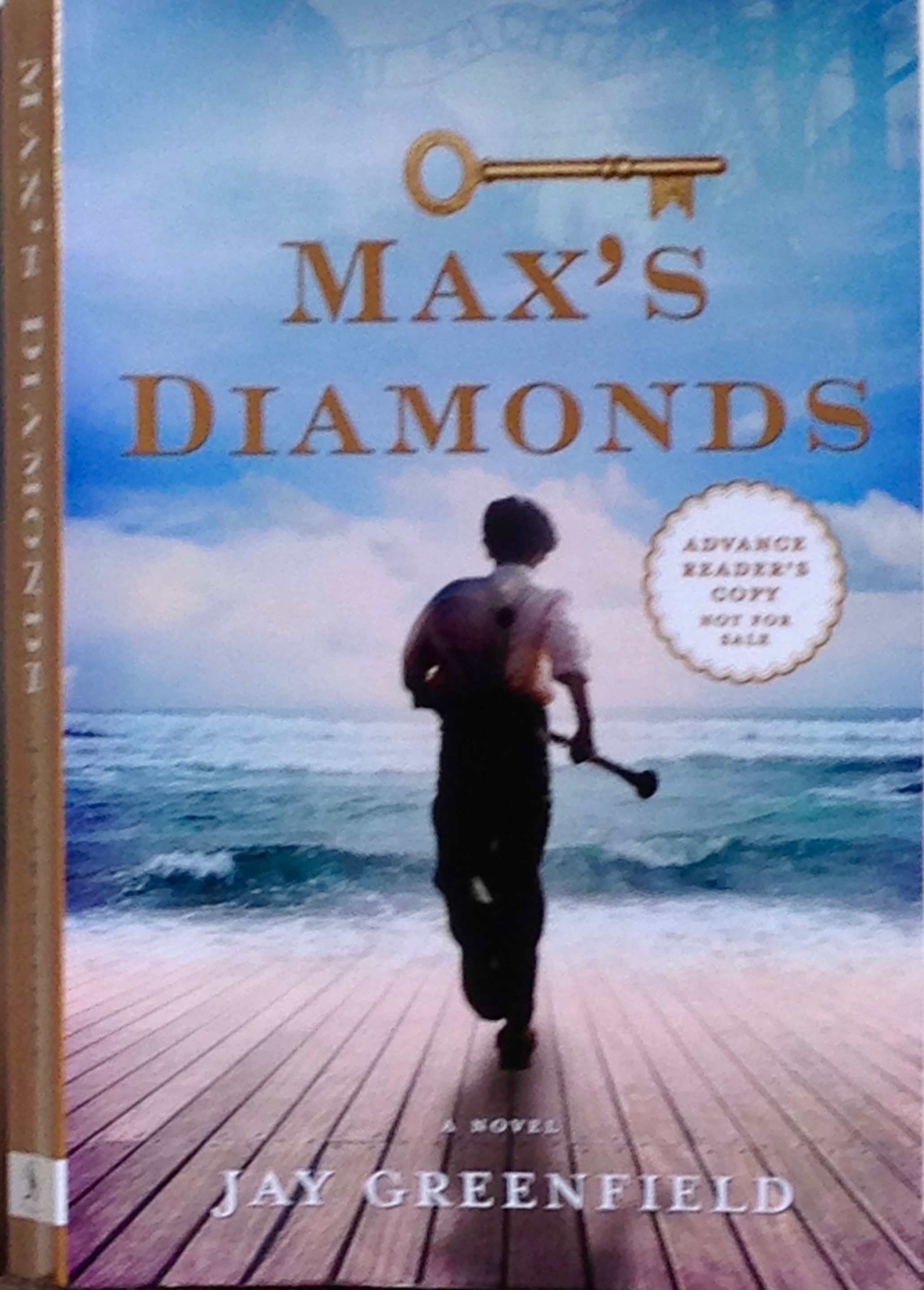 "Max’s Diamonds, Jay Greenfield’s debut novel published last week by New York publisher Chickadee Prince Books, is a guilty pleasure, a book I enjoyed and could barely put down for its suspenseful serpentine plot despite its pedestrian and occasionally heavy-handed prose." -- From my examiner article (which begins in the next paragraph). Also see my New York Journal of Books review, which concludes "with Max's Diamonds readers are rewarded with a fun and absorbing read whose fortuitous May publication date makes it a felicitous beach or airplane book."
"Max’s Diamonds, Jay Greenfield’s debut novel published last week by New York publisher Chickadee Prince Books, is a guilty pleasure, a book I enjoyed and could barely put down for its suspenseful serpentine plot despite its pedestrian and occasionally heavy-handed prose." -- From my examiner article (which begins in the next paragraph). Also see my New York Journal of Books review, which concludes "with Max's Diamonds readers are rewarded with a fun and absorbing read whose fortuitous May publication date makes it a felicitous beach or airplane book."
Max’s Diamonds, Jay Greenfield’s debut novel published last week by New York publisher Chickadee Prince Books, is a guilty pleasure, a book I enjoyed and could barely put down for its suspenseful serpentine plot despite its pedestrian and occasionally heavy-handed prose. Like Greenfield, the novel’s protagonist Paul Hartman grows up in a Jewish community in Rockaway, Queens and goes on to become a successful lawyer. Greenfield is old enough that like Paul he probably encountered anti-Semitic colleagues early in his legal career. To Greenfield’s credit he makes complex legal cases understandable to the general reader.
But this is a work of fiction, not a memoir, and some of the fictional character’s biographical details differ from those of the author. The eponymous diamonds, which fund Paul’s education, are of unethical provenance, and come with obligations that threaten to impede Paul’s professional advancement. In my New York Journal of Books review of the novel I compare Paul’s predicament trying to balance the irreconcilable demands of his professional ethics and his unethical relatives to that of the young Michael Corleone in The Godfather movies.
According to a mutual friend another difference between the author and his character is that Greenfield’s parents and grandparents were Eastern European Jews whose mother tongue was Yiddish, while Paul’s parents were German speaking Jews from a majority German speaking part of northwestern Bohemia who adopted Yiddish as adults to avoid speaking the language of the Nazis. The elder Hartmans’ decision to switch from German to Yiddish strikes me as implausible and ahistorical.
Historically inaccurate details are distracting to knowledgable readers. We read historical fiction to take our imaginations to another time and place, but when the details don’t fit that time and place the effect is spoiled.
Czech Jews switched from Yiddish to German in the 19th Century, Twentieth Century Bohemian and Moravian Jews were bilingual in German and Czech, Yiddish was no longer spoken, and early 20th Century Jewish writers wrote in German. How would people who did not grow up speaking Yiddish and were never immersed in a Yiddish speaking community suddenly know Yiddish?
Paul’s parents might have learned Yiddish from their Eastern European grocery store customers and fellow Orthodox synagogue congregants and/or taken Yiddish classes offered at The Workman’s Circle, YIVO, or local colleges, and his survivor relatives who arrive after the war might have learned it from other inmates in concentration camps and post-war displaced persons camps, but the narrative doesn’t spell out these details other than to say, “that although German, more than Yiddish, had been his parents’ principal language in Europe, they refused to speak it in America.”
But if the language switch is historically unlikely, it may nonetheless be emotionally accurate. When I recall the strong Jewish identities and sensitivity to anti-Semitism of Holocaust survivors in my acquaintance, the emotional tone of such a plot element seems right even though that specific detail is probably factually false.
I close my NYJB review emphasizing the positive, noting “Max’s Diamonds readers are rewarded with a fun and absorbing read whose fortuitous May publication date makes it a felicitous beach or airplane book.”
Wednesday, May 11, 2016
My poetry book Glued To The Sky is now an audiobook
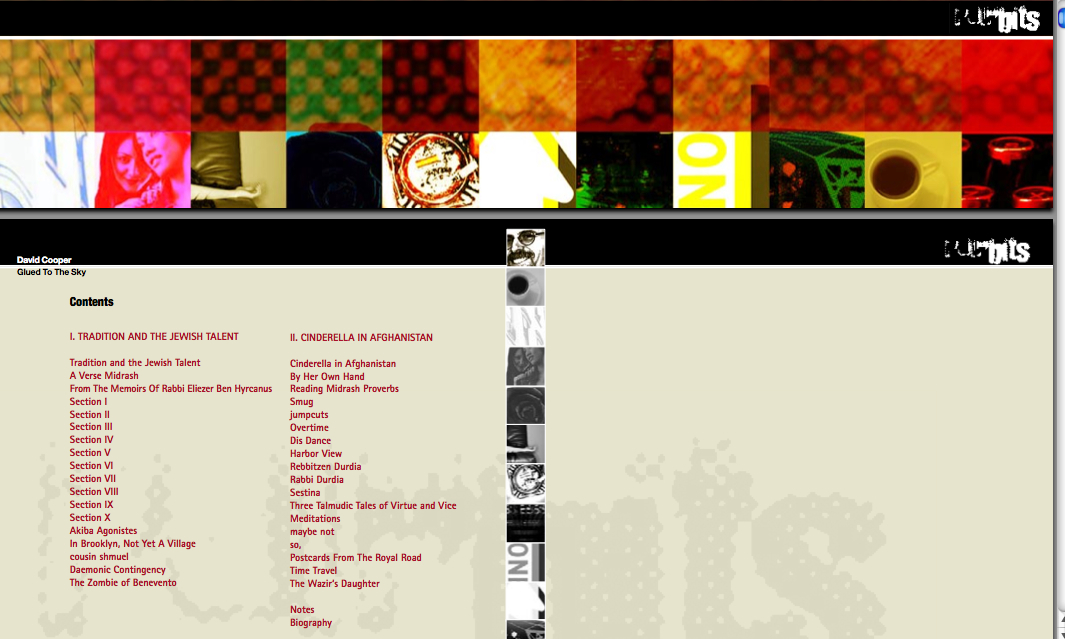 My poetry book Glued To The Sky is now also an audiobook. Glued To The Sky includes both narrative and lyric poems concerning group identity and gender issues in a wide variety of forms. Glued To The Sky was published by PulpBits in 2003. Sadly, PulpBits went out of business in 2007. An ebook version of Glued To The Sky in the pdf format can be downloaded at davidfcooper.com
My poetry book Glued To The Sky is now also an audiobook. Glued To The Sky includes both narrative and lyric poems concerning group identity and gender issues in a wide variety of forms. Glued To The Sky was published by PulpBits in 2003. Sadly, PulpBits went out of business in 2007. An ebook version of Glued To The Sky in the pdf format can be downloaded at davidfcooper.com
Tuesday, May 10, 2016
Books: Charles Bock and Jennifer S. Brown portray Manhattan in earlier eras
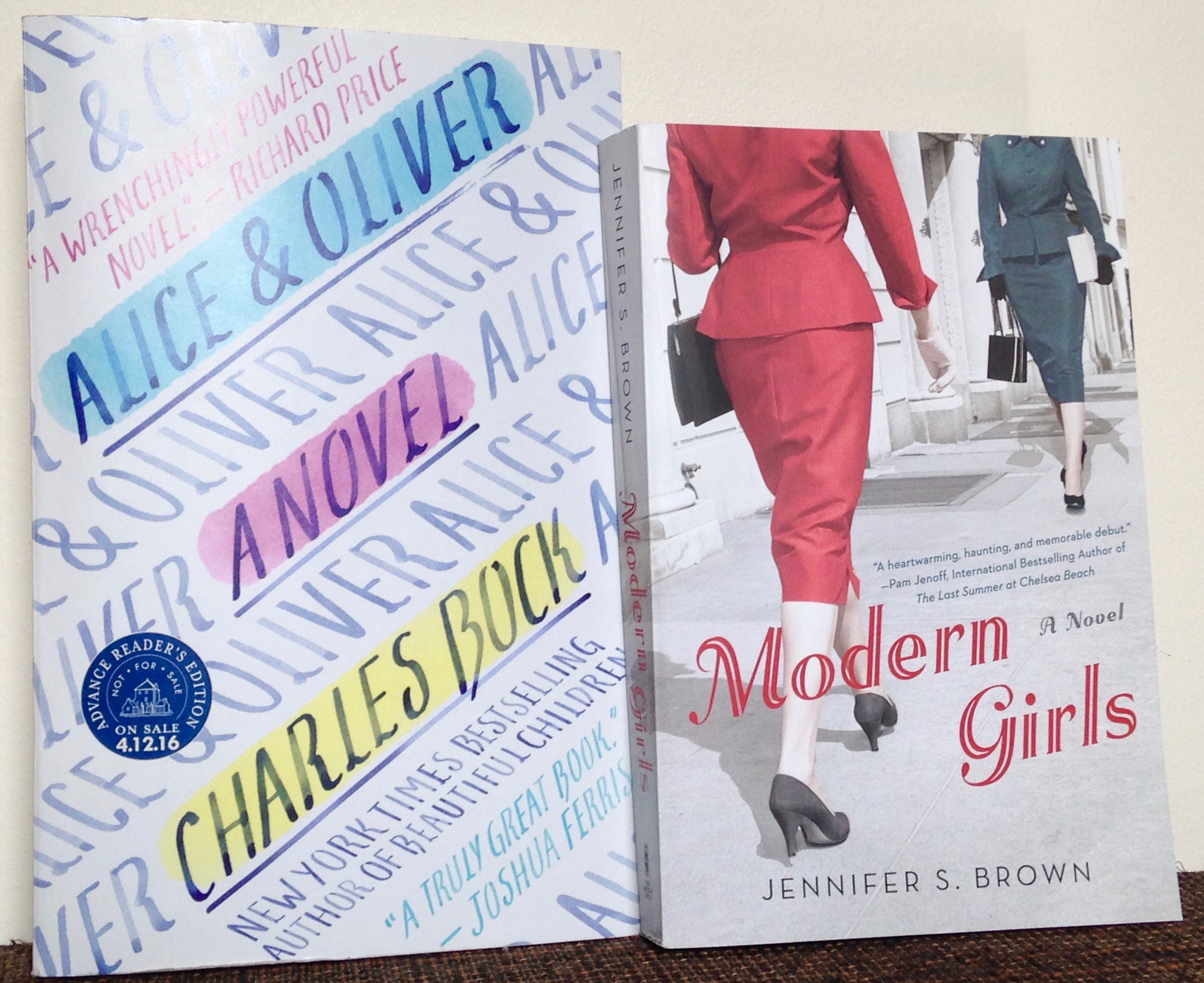 My reviews of the two novels appear in New York Journal of Books. Read those reviews first, and then go to the next paragraph to read my additional remarks that appeared in an article in a different and now defunct publication comparing the two novels that were published the same week.
My reviews of the two novels appear in New York Journal of Books. Read those reviews first, and then go to the next paragraph to read my additional remarks that appeared in an article in a different and now defunct publication comparing the two novels that were published the same week.At first glance two historical novels published last week have little in common. Where Charles Bock’s second novel Alice and Oliver is a starkly realistic and unflinching portrait of a marriage undergoing trial by health crisis in 1990s New York, Jennifer S. Brown’s debut novel Modern Girls , on the other hand, is a warm, heimisheh tale of two generations of women in a Jewish immigrant family on Manhattan’s Lower East Side in the 1930s whose opportunities and choices were limited by their gender.
In my New York Journal of Books review of Alice and Oliver I describe how the novel “relates the physical and emotional toll cancer treatment takes on the patient, the spouse, their marriage, and how they face mortality.” My NYJB review ofModern Girls predicts readers will become “emotionally invested in Rose and Dottie Krasinsky, the novel’s Yiddish speaking immigrant mother and American born adult daughter characters who find themselves unexpectedly pregnant and who share the first person narration in alternating chapters whose action occurs over two months from July to September 1935.”
Though differing in tone, both novels portray Manhattan in earlier eras. Here is how Bock renders Manhattan during Alice and Oliver’s student days in the 1980s:
“During that most indulgent stretch of the eighties, in the wee hours of those wild nights; back when stockbrokers and club freaks had finished their cross-cultural tangles on the various dance floors of Limelight, or had tired of dry humping in the most impenetrable crannies of Tunnel, or had chopped out their final lines on Nell’s glossy tables; after the go-go boys of the Paradise Garage, the strippers from Billy’s Topless, the bears at Mineshaft, and drag queens of Jackie 60, to say nothing of the dominatrices from all those converted basements, and the chicks with dicks who were hooking tricks on Little West Twelfth, once all those beautiful and their damneds had finished crawling through the darkness, done with their respective hobbies, predilections, and transgressions; when they were still strung out, still jittery, and needed a place to calm down, somewhere to hash out all those loose ends, relive the night, perform some more, or just grab some decaf, accepted wisdom—among those who knew—had it that no matter where you’d been, no matter whom on the West Side you might have done, someone else from your particular locale of debauchery would have made their way toward that street of deep grooves and broken cobble-stones. The aquamarine-blue metal panels from a different era.”
If that decadent portrait makes you yearn for a more innocent time, try out Brown’s description of the Lower East Side in 1935 in the voice of Rose Krasinsky:
“The avenue was busy, with hawkers and carts and children playing in the streets and women bustling about, doing their shopping, pausing to gossip with friends. On one stoop, boys were shooting craps, yelling loudly as they rolled the dice, arguing over who owed what to whom. The scene was exactly like the one on my street, but here it had an ominous overtone, as I knew what else lived on this street.”
I conclude my NYJB review of Bock’s novel by noting that “Alice and Oliver is not appropriate material for a Lifetime or Hallmark movie. But as unsentimental realist fiction at its starkest it would make a raw, gritty HBO miniseries, and is strongly recommended to fearless, emotionally resilient readers who enjoy well-crafted prose.”
I could picture Modern Girls, on the other hand, as a Lifetime movie, though it is definitely not suitable for Hallmark. I conclude my NYJB review by praising Brown’s novel whose “simple, direct prose is accessible and notwithstanding its frank depiction of sexual desire traverses both the young adult and the adult historical fiction genres. Its suspenseful plot and warm emotional tone should appeal to a wide audience.” For fuller discussions of the two novels see my reviews in New York Journal of Books.
Friday, March 25, 2016
Jewish books: Fishman and Tsabari explore home and displacement in new fiction
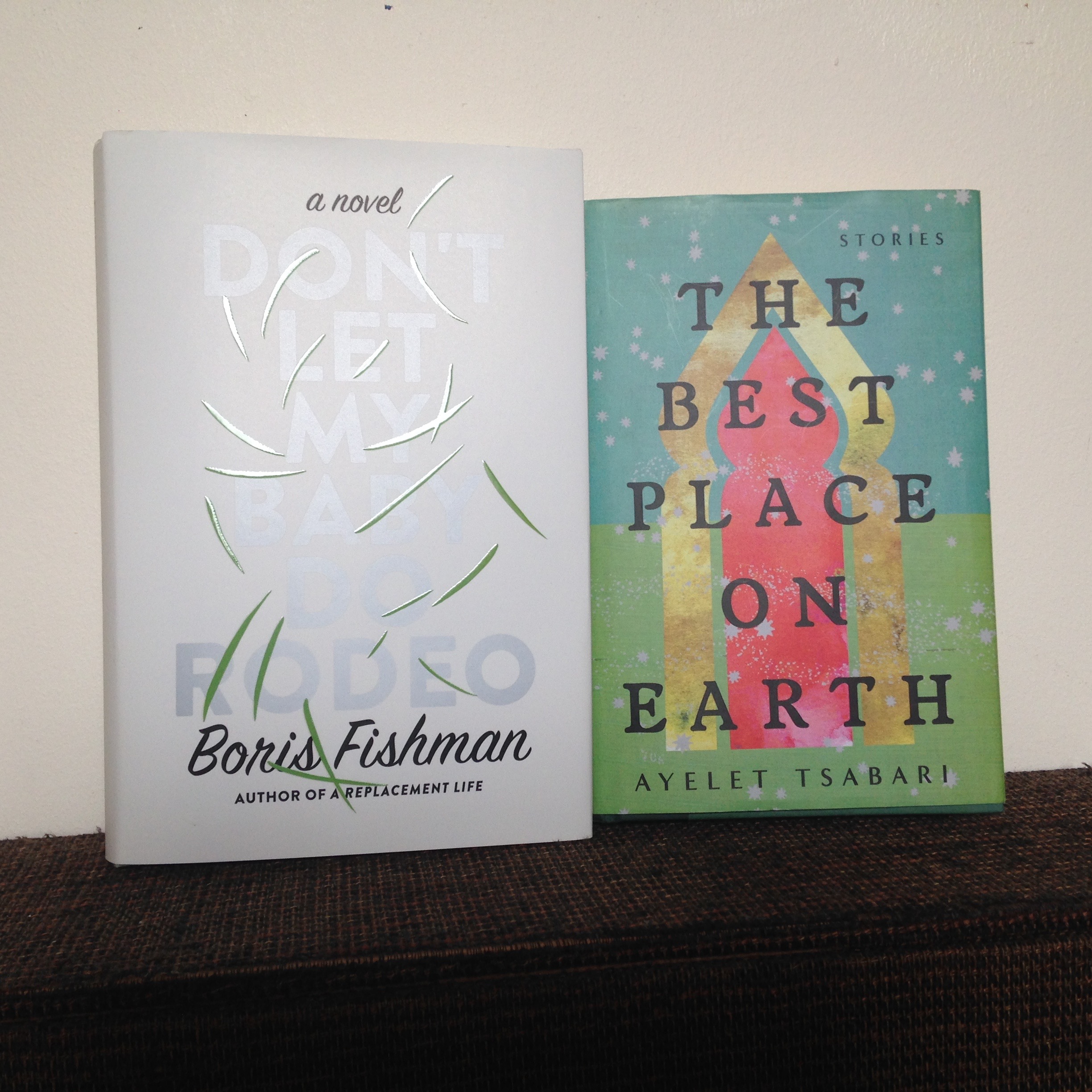 In my examiner article (next paragraph) I write:
"Two fiction books published this month explore what home means for two distinct waves of recent immigrants. Boris Fishman continues to relate the experiences of Russian speaking Jews who immigrated to America in the 1970s, 80s, and 90s in his second novel Don't Let My Baby Do Rodeo, and Canadian-Israeli writer Ayelet Tsabari explores the lives of young Israelis at home and abroad in her debut book of short stories The Best Place on Earth: Stories, which won the Jewish Book Council’s $100, 000 Sami Rohr Prize for Jewish Literature in 2015 for the 2013 Canadian edition."
Also see my New York Journal of Books reviews of the two books:
In my examiner article (next paragraph) I write:
"Two fiction books published this month explore what home means for two distinct waves of recent immigrants. Boris Fishman continues to relate the experiences of Russian speaking Jews who immigrated to America in the 1970s, 80s, and 90s in his second novel Don't Let My Baby Do Rodeo, and Canadian-Israeli writer Ayelet Tsabari explores the lives of young Israelis at home and abroad in her debut book of short stories The Best Place on Earth: Stories, which won the Jewish Book Council’s $100, 000 Sami Rohr Prize for Jewish Literature in 2015 for the 2013 Canadian edition."
Also see my New York Journal of Books reviews of the two books:http://www.nyjournalofbooks.com/book-review/dont-let-my-baby http://www.nyjournalofbooks.com/bo…/b...
Moving is one of life’s most traumatic experiences and all the more so when moving to another country and living in a new language. Two fiction books published this month explore what home means for two distinct waves of recent immigrants. Boris Fishman continues to relate the experiences of Russian speaking Jews who immigrated to America in the 1970s, 80s, and 90s in his second novel Don’t Let My Baby Do Rodeo , and Canadian-Israeli writer Ayelet Tsabari explores the lives of young Israelis at home and abroad in her debut book of short stories The Best Place on Earth , which won the Jewish Book Council’s $100, 000 Sami Rohr Prize for Jewish Literature in 2015 for the 2013 Canadian edition.
In my New York Journal of Books review of Don’t Let My Baby Do Rodeo I synopsize Alex and Maya Rubin’s experiences as adoptive parents and how Maya in the second half of the novel becomes a femme fatale, a role that is foreshadowed earlier in the novel when Alex compares her to Tolstoy’s Anna Karenina:
“Railroad mind”—that was Alex’s term for the hive of Maya’s brain. Railroads made him think of motion, steam, frantic activity. What he really meant was that she was like some Anna Karenina—superfluously melodramatic. And Maya understood what he really meant only because she had a railroad mind.”
The age at which one immigrates also influences one’s ability to adapt to a new country:
“Alex had been ten years younger than Maya’s eighteen when his family had come to America; the Rubins had come for good, whereas Maya had come on an exchange program in 1988, the first year such things were possible. After college, Maya was supposed to return to the USSR—a plan altered by her love affair with Alex and the end of the USSR. Alex had taken to America—he spoke with confidence about Wall Street, the structure of Congress, technology. Maya conceded his authority. Only once had she exclaimed that in twenty years he had almost never left New Jersey, so what did he know? Alex had looked at her as if at a child who doesn’t understand what it means to say things one will later regret, and retreated upstairs. He did not speak to her for three days, their sullen meals spent communicating through Max and his grandparents, and Maya never said that again.”
Tsabari’s Israeli ex-pats are only a few years older than Fishman’s Maya was when she moved to America, and yet for them it is more of a choice. In my New York Journal of Books review of The Best Place on Earth I note how well adapted Tsabari’s Israeli-Canadians are to life in Canada. But in an article in LitHub Tsabari relates how hard won is her ability to write in her second language:
“During those first few years in Canada, even speaking in English was a challenge. I was discouraged by my failure to convey complex thoughts, irritated by my inability to fight with my boyfriend in an eloquent way, embarrassed by my frequent misunderstandings and mispronunciations.”
At a certain point she lacked mastery in both Hebrew and English, a feeling I experienced after living in Israel for five years when I sensed I was forgetting English but still didn’t write well in Hebrew. “My Hebrew was becoming rusty from lack of use, while my English was still not good enough. My dream of writing—the only dream I had ever truly held on to—was slipping away from me.”
While supporting herself by waitressing and cleaning homes and apartment building lobbies, Tsabari forced herself to write in English. Eventually the effort paid off and mirrored her emotional state now that she lived in Canada: “ I was calmer, lighter, more confident, and my English writing was cleaner, more straightforward, less flowery.”
Some of Tsabari’s stories set in Israel capture the stress and tension of living in a country where there is a constant threat of violence, which explains why for Tsabari’s Israeli new Canadians life there feels comparatively calmer.
It is said of the Israeli poet Leah Goldberg that she thought in Russian and wrote in Hebrew, and likewise the quality of Tsabari’s writing in English improved when she allowed Hebrew to influence it:
“Once I let my English writing be inflected with my Hebrew, infused with my voice, my accent, my background, and with the multiplicities of identity—the passion and drama of the Middle East, the oral traditions of my Yemeni ancestors, the tension and urgency of Israel—a new writer emerged.
“… Writing in a language foreign to me and to the place I am depicting seems fitting for a book like mine, preoccupied with in-between-ness. It adds layers of displacement that echo the experience of my characters, travelers, migrants, expats and outsiders who are often at a crossroads, in between places, in between identities, in between languages.”
That experience of displacement is something Fishman and Tsabari’s characters have in common. I conclude my review of Don’t Let My Baby Do Rodeo by writing that it “fulfills and surpasses the promise of [his debut novel] A Replacement Life.” Likewise I write that readers of Tsabari’s The Best Place on Earth will look forward to her novel in progress “with avid anticipation.” For a fuller discussion of these books read my reviews in New York Journal of Books.
Thursday, March 24, 2016
Israeli books: Youval Shimoni's experimental post-modern fiction classic A Room
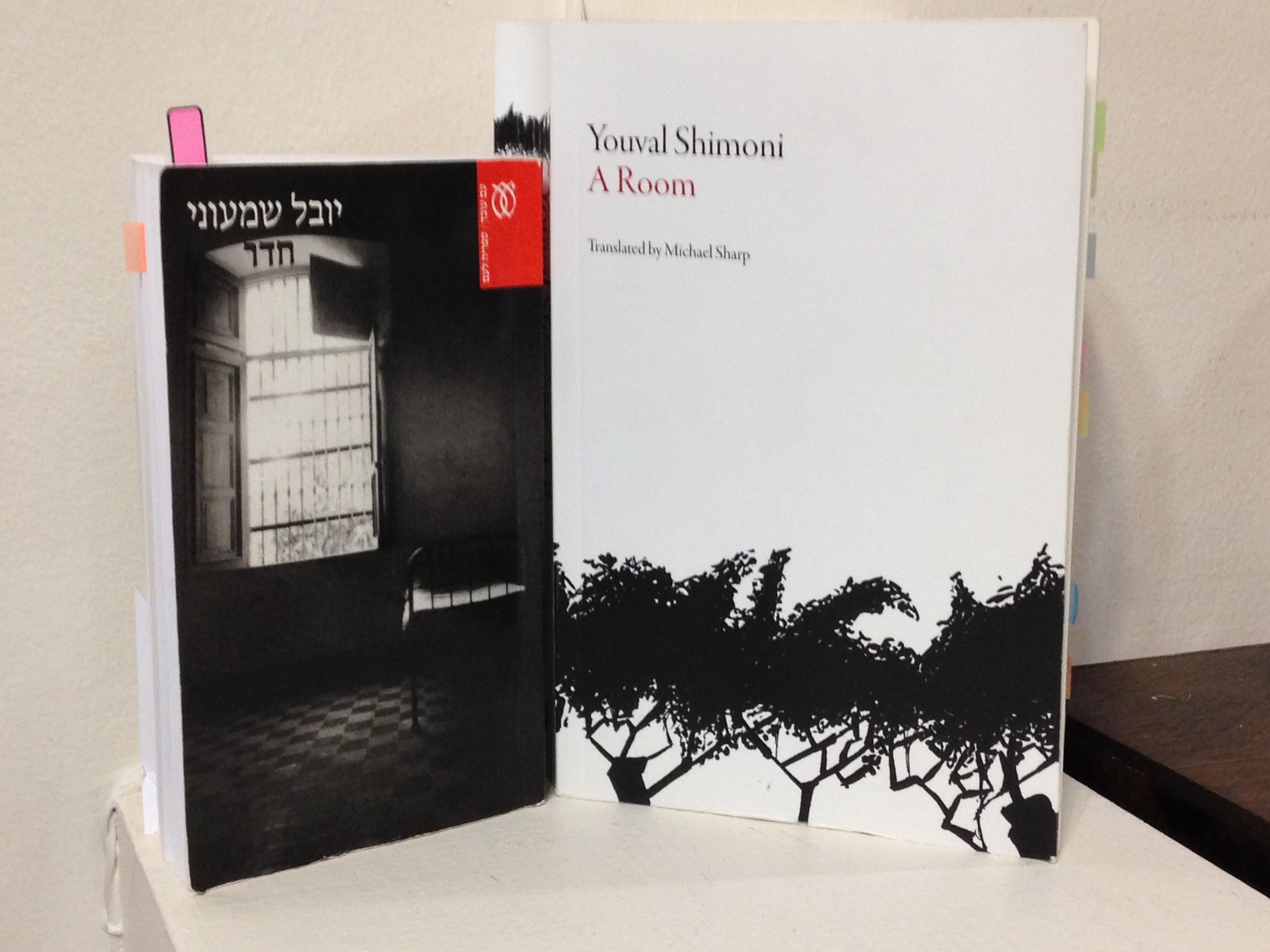 In my New York Journal of Books review of Youval Shimoni's A Room I write: "A Room is strongly recommended to readers of post-modern and experimental fiction who enjoy stream of consciousness narratives and who are willing to delve deeper than a thin plot’s surface level." Read that review first. Additional excerpts from the novel and my additional remarks that appeared in a different and now defunct publication begin with the next paragraph.
In my New York Journal of Books review of Youval Shimoni's A Room I write: "A Room is strongly recommended to readers of post-modern and experimental fiction who enjoy stream of consciousness narratives and who are willing to delve deeper than a thin plot’s surface level." Read that review first. Additional excerpts from the novel and my additional remarks that appeared in a different and now defunct publication begin with the next paragraph.
Youval Shimoni’s 1999 novel A Room is known in Israel as an important work of post-modern fiction, and now it is available to English language readers in Michael Sharp’s translation thanks to Dalkey Archive Press. In my New York Journal of Books review I recommend A Room “to readers of post-modern and experimental fiction who enjoy stream of consciousness narratives and who are willing to delve deeper than a thin plot’s surface level.”
A Room is the second of Shimoni’s four books and the first to be published in English, but the book actually consists of two novels, The Lamp and The Drawer and a short story “The Throne,” and its themes are developed over all three texts. Those themes concern artistic creation, the leap between conception and execution, and what can go wrong during the latter. When the work of art is completed, then perhaps the viewer/reader’s process of engaging with it in some sense mirrors the artist’s process of creating it.
In The Lamp a mixed civilian and military film crew prepare to make a short army instructional movie about how to use a gas mask. In the first chapter we are told that a man has burned to death in an explosion during the filming, and the subsequent chapters describe what happened leading up to that unanticipated tragedy.
In his sonnet "On His Blindness" the 17th Century English poet John Milton wrote, “They also serve who only stand and wait,” and for most of The Lamp the narrative explores what the characters are thinking about as they stand around waiting while a piece of equipment is being repaired. Nearly all of those mental digressions are placed in parentheses, and the word count of the text in parentheses is several times greater than that of the rest of The Lamp. Likewise the language alternates between the everyday colloquial and long dense handsomely written stream of consciousness passages.
In some of the most lyrical of the parenthetical digressions characters recall foreign travel:
“(Millions upon millions of waves stormed toward the cliff on which the hut stood, and everything he had abandoned now came upon him with a vengeance, his entire body, which had become thin and feverish, was filled with this knowledge: far above the unraveled mosquito net and above the thatch and above the clouds that the lightening sliced with a thrust, in the depths of the highest heaven, gigantic thunderous balancing scales moved; seven degrees from the equator he heard them with absolute clarity—in his eyes the mark of the location was not without meaning; and in the white of a grain of salt he could see the movement of a wave from the end of the ocean, the blazing of the equatorial sun, the refining and the purifying of the wave, its slow drifting toward the sky, its slow condensing and the touch of those kneading fingers endowing each cloud with its mark, until it ripens and falls and billows—on one scale was this island to which he had traveled far with all its bays and hills and masses of palm trees, and on the other a handful of dried leaves, upon which they had once lain: at the time a small sparrow stood on the sill beneath the stuck shutter and whistled.)”
In The Drawer an Israeli art student in Paris promises three local homeless people each a meal at McDonalds in exchange for posing as models in a hospital morgue with its refrigerated drawers in a remake of a famous renaissance painting of Jesus’ post-crucifixion pre-resurrection corpse. In the original painting “the ribs stretched his skin like a drum upon which perhaps drops of rain drummed afterwards, grains of hail or the beaks of birds. In the place to which you are going the cold will seep in from the holes in the palms and the soles and from the cut in the chest, until it fills the entire body and turns it blue; the stainless steel drawer will reflect the pale light of the fluorescent lamps, there were always fluorescent lamps in places like that, and perhaps the drawer won’t close with the bottle that will be standing in the corner instead of the goblet.”
The final text in A Room, “The Throne,” describes the many discarded designs a memorial monument goes through from conception to execution, and is a kind of commentary on the previous two novels.
For fans of post-modern experimental fiction A Room is a must read.
A Room is the second of Shimoni’s four books and the first to be published in English, but the book actually consists of two novels, The Lamp and The Drawer and a short story “The Throne,” and its themes are developed over all three texts. Those themes concern artistic creation, the leap between conception and execution, and what can go wrong during the latter. When the work of art is completed, then perhaps the viewer/reader’s process of engaging with it in some sense mirrors the artist’s process of creating it.
In The Lamp a mixed civilian and military film crew prepare to make a short army instructional movie about how to use a gas mask. In the first chapter we are told that a man has burned to death in an explosion during the filming, and the subsequent chapters describe what happened leading up to that unanticipated tragedy.
In his sonnet "On His Blindness" the 17th Century English poet John Milton wrote, “They also serve who only stand and wait,” and for most of The Lamp the narrative explores what the characters are thinking about as they stand around waiting while a piece of equipment is being repaired. Nearly all of those mental digressions are placed in parentheses, and the word count of the text in parentheses is several times greater than that of the rest of The Lamp. Likewise the language alternates between the everyday colloquial and long dense handsomely written stream of consciousness passages.
In some of the most lyrical of the parenthetical digressions characters recall foreign travel:
“(Millions upon millions of waves stormed toward the cliff on which the hut stood, and everything he had abandoned now came upon him with a vengeance, his entire body, which had become thin and feverish, was filled with this knowledge: far above the unraveled mosquito net and above the thatch and above the clouds that the lightening sliced with a thrust, in the depths of the highest heaven, gigantic thunderous balancing scales moved; seven degrees from the equator he heard them with absolute clarity—in his eyes the mark of the location was not without meaning; and in the white of a grain of salt he could see the movement of a wave from the end of the ocean, the blazing of the equatorial sun, the refining and the purifying of the wave, its slow drifting toward the sky, its slow condensing and the touch of those kneading fingers endowing each cloud with its mark, until it ripens and falls and billows—on one scale was this island to which he had traveled far with all its bays and hills and masses of palm trees, and on the other a handful of dried leaves, upon which they had once lain: at the time a small sparrow stood on the sill beneath the stuck shutter and whistled.)”
In The Drawer an Israeli art student in Paris promises three local homeless people each a meal at McDonalds in exchange for posing as models in a hospital morgue with its refrigerated drawers in a remake of a famous renaissance painting of Jesus’ post-crucifixion pre-resurrection corpse. In the original painting “the ribs stretched his skin like a drum upon which perhaps drops of rain drummed afterwards, grains of hail or the beaks of birds. In the place to which you are going the cold will seep in from the holes in the palms and the soles and from the cut in the chest, until it fills the entire body and turns it blue; the stainless steel drawer will reflect the pale light of the fluorescent lamps, there were always fluorescent lamps in places like that, and perhaps the drawer won’t close with the bottle that will be standing in the corner instead of the goblet.”
The final text in A Room, “The Throne,” describes the many discarded designs a memorial monument goes through from conception to execution, and is a kind of commentary on the previous two novels.
For fans of post-modern experimental fiction A Room is a must read.
Subscribe to:
Posts (Atom)
